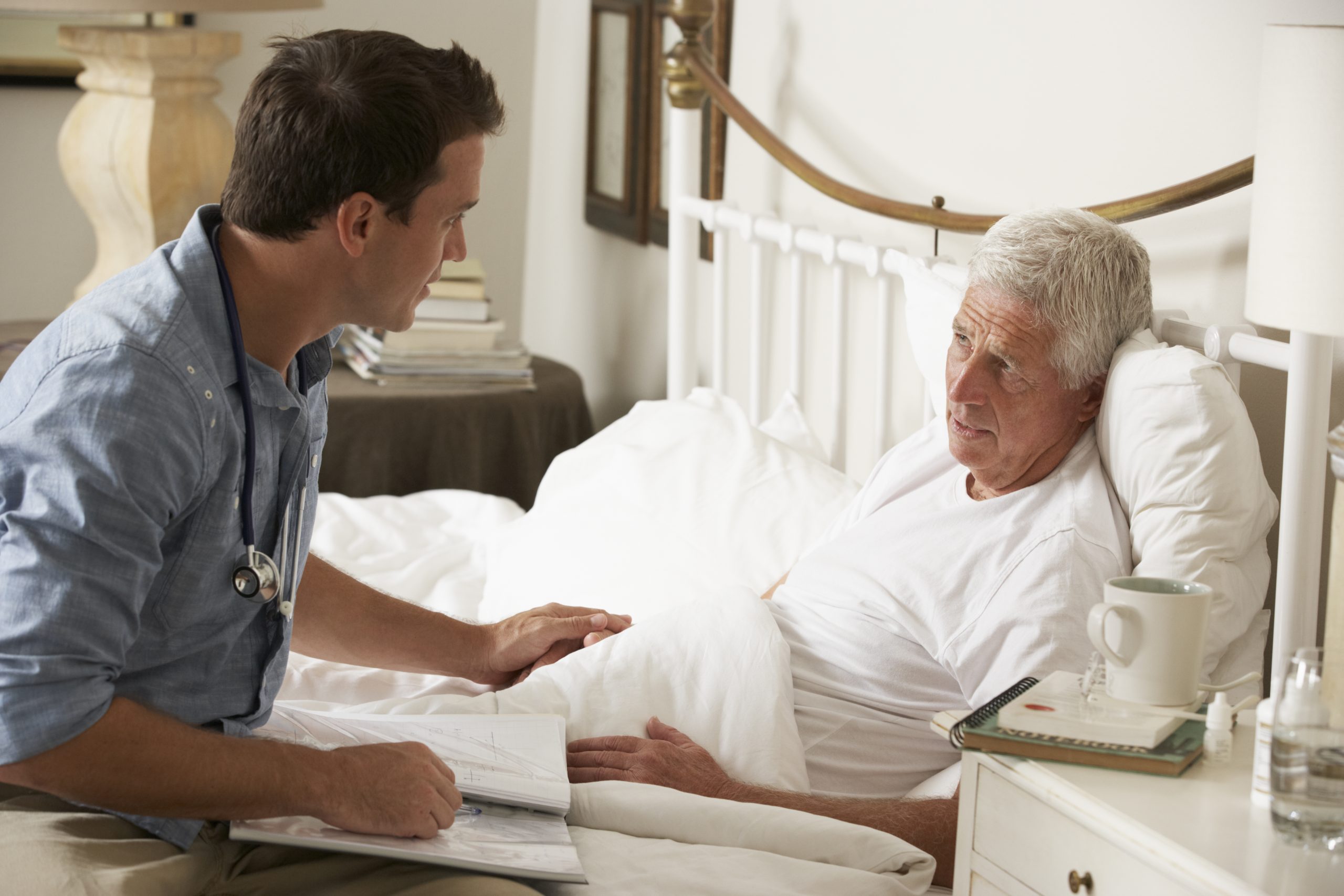
Doris is in her late eighties. She has a degree of heart failure, but the thing that renders her housebound is arthritis – both knees have long since lost all cartilage; bone grinds on bone. She spends her days in her recliner chair, surrounded by the essentials of life – TV remote, drinks, snacks, pills – laid within reach by the carers who come to give her each meal, and to get her into bed at night. She only moves independently if she needs the loo between care visits. It is painful and slow, Doris supporting her weight on a Zimmer frame to guard against falling when a leg suddenly gives way.
The physiotherapists have done what they can. Doris has been to the orthopaedic surgeons at our nearest district general, all-day excursions involving 50-mile round trips in an ambulance. Joint replacement surgery, they decided, would likely kill her, and even if she survived, outcomes would almost certainly be poor. The best they could offer were knee braces, but they haven’t helped. So we’re left trying to manage her pain, a difficult task given the troublesome – and on occasion dangerous – side effects she’s experienced from powerful analgesics.
Fortunately, she gets a response to a joint injection. A needle inserted carefully into the side of the knee allows me to draw off the arthritic fluid to relieve the swelling, and to then instil steroid which reduces inflammation and pain. The effects last several months but inevitably wear off. Doris then gets back on the phone, and round I go, needles, syringes and drug vials packed ready for the repeat procedure.
I went recently, on the day GP leaders in Kent issued a call for home visits to be removed from our national contract. Their motion was debated at the Local Medical Committees conference last Friday, and to many people’s shock it was carried 54 to 46 per cent. It now becomes BMA policy, and represents the starkest illustration of the unrelenting crisis in general practice.
The NHS has provided care to patients like Doris in their own homes from its inception, but GPs across the country now finish morning surgery with a sense of dread: how many home visits will there be? For a semi-rural practice such as ours, the furthest flung will consume the best part of an hour each. For colleagues practising in urban areas distances are typically shorter, but traffic congestion can make journeys comparably time-consuming. While we’re trapped on the road, the work piles up back at surgery: prescription requests, lab results, referrals, correspondence, phone calls with social workers or pharmacists, medical reports, governance issues. With home visits dominating the time before afternoon surgery, this non-patient-facing work gets knocked back into the evening. Day after day after day.
Faced with such pressure, it is tempting to reach for apparently easy solutions: if only we didn’t have to waste so much time driving to patients’ homes. Some areas have responded by setting up visiting services staffed by paramedics. All well and good when a paramedic can meet the need. But what of those patients whose require a GP’s expertise? We are fast approaching a situation where the frailest and most vulnerable patients cannot access GP care because of their disability.
Back in 2015, the then health secretary Jeremy Hunt pledged to recruit an additional 5,000 GPs by 2020, a 15 per cent increase that would have dramatically improved the situation. Numbers have instead fallen, piling even greater pressure on those doctors remaining in practice.
In this current election campaign, Boris Johnson has promised an extra 6,000. It doesn’t matter, the figure is mythical, and will remain so – like the huge numbers of unfilled nursing and hospital doctor posts throughout the NHS – until we get a government serious about properly funding our public services. The failure to recruit and retain staff across health and social care is a direct consequence of austerity politics. Don’t let anyone tell you otherwise.
This article appears in the 27 Nov 2019 issue of the New Statesman, The English Question





